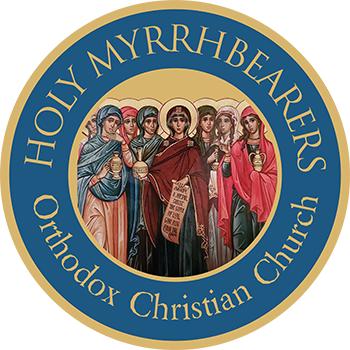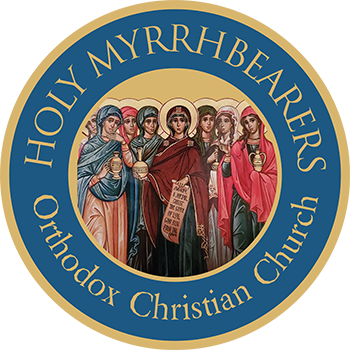October 12, 2025

In my recollection of family or what family has been in my years thus far, as long as someone is not an abuser, there have been two types, blood and water. My “blood” kin seem to always show up for Thanksgiving and funerals and if a serious need arises. You can count on it! My “water” kin are you guys, baptized in the Jordan and struggling to scrub the world off our skin, day by day. Although by His blood we are blood kin as well!
We all have different definitions of family somewhat based upon our struggles thus far. And most of our grooming has come from someone caring for us as we matured. For better or worse, this was how we were shaped. Sometimes you hear, you’re just like your father or just like your mother! But some of these patterns of behavior we struggle with and spend time trying to change as we age so that maybe we are not just like so and so anymore! Maybe we have improved on it a bit, but how far is your apple from the tree?
For those that have been abusive to us we may not consider kin and have built a wall of protection dividing the good from the bad. Perhaps they have become enemies of our state, our state of normalcy, trust and survival, or at least what we understand that to be at this stage in our life. Our Lord challenges our wall of protection today as we heard: “And if ye should love those who love you, what kind of thanks is there to you?” (Lk 6:32) How is this even possible? St. Silouan the Athonite writes, "The soul that has not known the Holy Spirit does not understand how one can love one’s enemies, and does not accept it." Boy, it looks like we have some work to do! Do I really want to be vulnerable?
St. Silouan goes on to say: "The Lord has commanded us to love our enemies, and the Holy Spirit reveals this love to us"; "One can only love one’s enemies through the grace of the Holy Spirit"; "When you will love your enemies, know that a great divine grace will be living in you."
St. Zosima adds “If someone remembers a brother who has hurt, injured or insulted him, he must regard him as a doctor and benefactor sent by Christ. If you get upset in these circumstances, it means your soul is sick. Indeed, if you were not sick, you would not suffer. So give thanks to this brother, for through him you know your illness. Pray for him and receive what comes from him as medicine sent to you by the Lord.” St. John of Gaza writes, “If we are just, the trial sent us [by our enemies] is for our progress, and if we are unjust, it is for the remission of sins and our improvement; it is also an exercise and a lesson in endurance.” “Do not sorrow, for the joy of the Lord is your strength.” (Neh 8:10)
Are we holding on to these feelings of disgust and hate demanding some sort of ransom? Is our pride asking us to cling to death, and not to forgive? St. Mathew records: “Blessed are ye, when men shall revile you, and persecute you, and shall say all manner of evil against you falsely, for my sake.” (Mt 5:11) The Fathers advice us to consider the person who offends us as a physician providentially come to cure our souls of its diseases, particularly pride and vainglory, they emphasize the profit one can gain from what one is made to suffer. (Apophtegmata XVI,19; St. Dorotheos of Gaza, Letters 7; Ignaty Briantchaninov, On the Jesus Prayer, III)
Forgiveness does not necessarily mean that we want to become their victim again, but it will release their hold on our salvation. This attitude makes us worthy to invoke God for the forgiveness of our own faults in the prayer the Lord taught us: “And forgive us for our debts, as we forgive our debtors” (Mt 6:12), and shows that we take these words of Christ seriously: “For if ye forgive men their trespasses, your heavenly Father will also forgive you” (Mt 6:14). This forgiveness in its highest form does not even remember what one has suffered. St. Simeon the New Theologian notes that in this degree love of enemies consists in “covering with total oblivion what one has suffered, think of nothing that has happened, whether the persecutors are present or absent.” (https://oodegr.com/english/psyxotherap/love_enemies.htm)
St. Silouan continues: “I beg you, try,” and states, “In the beginning, force your heart to love your enemies.” The efforts one makes must manifest themselves in a general way in a straight intention and constant good will, stretched toward the realization of God’s command. God will not fail to respond. “But keep on loving your enemies and doing good, and lending, hoping to receive back nothing; and your reward shall be great, and ye shall be sons of the Highest; for He is kind to the unthankful and to the evil.” (Luke 6:35) (https://orthochristian.com/7173.html)
For the person who feels discouraged by such a demanding task, St. Silouan reassures him: “Seeing your good intention, the Lord will help you in everything.” Let’s end with this prayer: “Lord, teach us through Your Holy Spirit to love our enemies and to pray for them with tears . . . Lord, as you prayed for your enemies, so teach us also, through the Holy Spirit, to love our enemies." (St. Silouan)
Fr. Gabriel Weller 10-12-2025
Comments will be approved before showing up.

